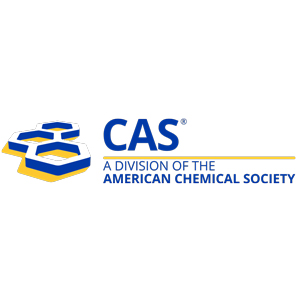Pistoia Alliance October Virtual Conference: Describing Chemistry to Algorithms: Why Scientific Expertise Improves AI Accuracy
This is part of the Pistoia Alliance Collaborate to Innovate Virtual Conference Week, October 19-23, 2020. For more information about related events, please visit our online calendar.
Summary
More and better data is an obvious need, but have you considered how impactful descriptors can be on predictions? Join us to see how better descriptors can improve AI algorithm performance on predicting biological activity across multiple algorithmic approaches with over 150k compounds.
This case study by CAS and Dr. Alpha Lee (University of Cambridge) was recently peer reviewed and published in the Journal of Chemical Information and Modeling. It showcases the impact of better descriptors on prediction accuracy while also revealing unique insights beyond a standard descriptor that may get used today. If your AI initiatives aren’t meeting expectations, learn how better quality descriptors can immediately improve accuracy vs. existing fingerprints.
Learning Objectives
At the conclusion of this session, participants should be able to:
- Learn how better quality descriptors can immediately improve accuracy vs. existing fingerprints.
Featured Topics
- Better data is an obvious need for improved AI predictions, but have you considered the role of chemical descriptors?
- Chemical descriptors often get overlooked, but this study demonstrates how drastically it can improve prediction rates, reveal hidden connections and insights.
- See how better descriptors improve predictions across multiple algorithms.
Sponsored by:


Yugal Sharma, PhDSenior Director, Solutions, CAS Dr. Sharma has over 15 years of experience in applying and managing data science and machine learning approaches to solving complex problems in the healthcare space. Yugal was a scientist for the National Institutes of Health (NIH), focusing on developing early disease detection algorithms. Since NIH, Yugal helped found a technology startup, followed by a business consulting startup. More recently, he applied his background as a government consultant focusing on analytics strategy for NIH and FDA clients. He has published several scientific articles, as well co-authoring a book chapter on the mining of Electronic Health Records to detect disease signals. He is currently the Sr. Director of Solutions for CAS Services which engineers customized approaches for your unique scientific information challenges – from AI/ ML initiatives, to faster workflows, and novel approaches to unlock value out of your scientific data. Yugal received his PhD in Biophysics from University of Cincinnati, where he graduated with honors. |
Learn more: https://www.linkedin.com/in/yugalsharma/
